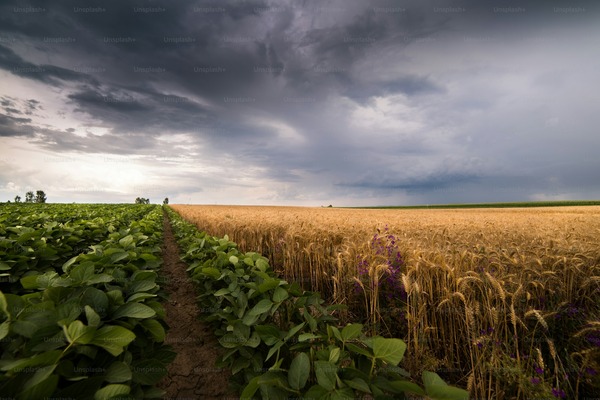Climate Change and Agricultural Adaptations
By Deborah
Nowadays, one of the major pressing challenges faced in agriculture today is climate change. There have been cases of increased environmental temperatures, weather patterns that are unpredictable, and extreme climate events. These just don’t pose a threat to the environment but to several farmer’s livelihood worldwide. The agricultural sector, therefore has found ways to adopt some innovative strategies that can help them thrive despite these climate changes.
Climate Change Impact on Agriculture
The effects of these climate changes on agriculture are very profound.
(i)Increasing temperatures can cause a decrease in crop yields and livestock productivity likewise.
(ii)Changes in the patterns of rainfall can either cause droughts or flooding, depending on the intensity.
(iii)Due to recent warm climates, pests and diseases are also becoming widespread and this poses a great threat to food security worldwide.
For small scale farmers, they often lack resources to cope with these changes, therefore, the risks are severe.
What can be done amidst this climate change challenges?
a) Adapting Farming Practices
To minimize the effects of climate change on agriculture, farmers are adopting some climate-smart agricultural practices such as:
• Diversification of Crops: growing a variety of crops on a farmland can help reduce the risk of disease and pest infestation. It can also ensure food security even if some fail to grow or yield due to extreme weather conditions.
• Planting Drought-Resistant Crops: the use of genetic modified crops or crops that are naturally resistant to drought help farmers to cope when there’s scarcity of water.
,• Implementing Crop Conservation Techniques: some conservation techniques such as organic farming, reduction of soil tillage, cover cropping, crop rotation, can help improve soil health and reduce erosion.
• Management of Water: recent innovations like drip irrigation and rainwater harvesting are helping farmers to use water more efficiently for crop production.
b) Embracing Technology
Technology nowadays is playing an important role in the adaptation to climate change. Precision agriculture are now employed to tackle this challenges faced in agriculture. This agriculture, which involves the use of drones, sensors, and artificial intelligence, allows monitoring of crops and condition of the soil in real-time. This data driven innovation aids the optimization of the use of resources and increase yields.
The availability of weather forecasts, market information and farming practices and guides are good tools that also enable farmers to plan and respond to changing climate conditions.
c) Implementation of Policies and Collaboration
Farmers have the greatest role to play in this adaptation, but government have to implement policies and the requirement for international cooperation is needed to support their efforts.
Collaboration should be made between farmers, governments, non governmental organizations, and private companies to foster the development and distribution of climate-smart technologies.
d) Financial Assistance
Investments should also be made in agricultural research and development to create crops that are resilient to these climate changes and improving farming systems. Financial assistance in form of subsidies and insurance programs, can also help farmers to recover from the losses caused by climate changes.
e) Enlightening and Education of Farmers
Farmers can be educated and enlightened about these adaptative practices that should be incorporated in agriculture. Training programs and awareness campaigns can be conducted to further ensure that these farmers have the right knowledge and skills to implement these practices.
Creating a Sustainable Future
Agricultural adaptation to recent climate changes is not just about surving the present challenges, but it’s also about creating and sustaining the future of agriculture. Embracing and encouraging the practices and technologies stated above, farmers can ensure food security for years to come.

Comments are closed